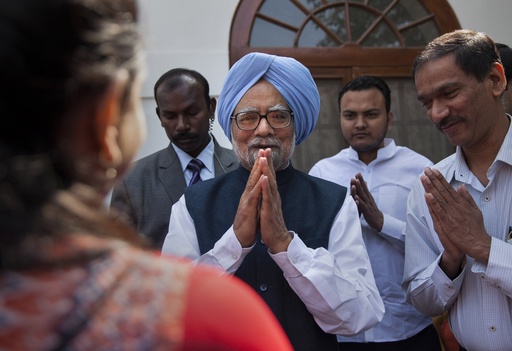
NEW DELHI — Former Prime Minister Manmohan Singh, who played a pivotal role in shaping India’s economic landscape and was instrumental in a historic nuclear agreement with the United States, has passed away at the age of 92.
Singh was hospitalized at the All India Institute of Medical Sciences in New Delhi after experiencing a sudden loss of consciousness at home. According to the hospital’s statement, attempts to stabilize him at home commenced immediately, and he arrived at the medical facility at 8:06 p.m. Unfortunately, despite extensive medical intervention, he was pronounced dead at 9:51 p.m. His health had been declining due to various age-related ailments.
Singh, known for his mild demeanor and expertise in economics, served as Prime Minister for a decade, during which he was also the leader of the Congress Party in the Rajya Sabha. He was appointed to the role in 2004 by Sonia Gandhi, the widow of Rajiv Gandhi, the former Prime Minister who was assassinated. Despite his esteemed reputation for integrity, Singh’s tenure was marred by corruption allegations against some of his ministers.
After being re-elected in 2009, his second term was overshadowed by various financial scandals, including issues surrounding the 2010 Commonwealth Games. These controversies contributed to the Congress Party’s significant defeat in the 2014 elections, which saw the rise of the Hindu nationalist Bharatiya Janata Party led by Narendra Modi.
Following his departure from the Prime Minister’s office, Singh maintained a low profile. Prime Minister Modi acknowledged Singh’s contributions, referring to him as one of India’s most notable leaders, who rose from humble beginnings and left a profound impact on the country’s economic policy.
In a post on X, Modi highlighted Singh’s commitment to improving people’s lives and praised his insightful contributions to parliamentary discussions, emphasizing that Singh’s wisdom and humility were always apparent.
Opposition leader Rahul Gandhi also paid tribute, stating Singh’s deep knowledge of economics inspired the nation and underscored his leadership qualities of wisdom and integrity. Gandhi expressed personal loss, considering Singh a mentor whose legacy would be cherished by many.
The United States extended its condolences, with Secretary of State Antony Blinken recognizing Singh as a great advocate for the strategic partnership between the U.S. and India. Blinken remarked that Singh’s efforts to strengthen ties between the two nations would always be remembered.
Born on September 26, 1932, in Punjab, India, Singh showcased remarkable academic prowess throughout his life. He studied at Cambridge University, earning his degree in economics in 1957, and later acquired a doctorate in economics from Oxford University in 1962. Singh held esteemed academic positions at Panjab University and the Delhi School of Economics before entering government service in 1971.
As India’s Finance Minister in 1991, Singh initiated significant reforms that transitioned the nation from a socialist economy to a more capitalist model, helping to avert an impending economic crisis.
His accolades included the Padma Vibhushan Award, India’s second-highest civilian honor, and several awards recognizing his exceptional contributions in finance.
Singh became a member of India’s Upper House of Parliament and served as the Leader of the Opposition prior to his premiership, becoming the first Sikh to hold the highest office in the country. He publicly apologized for the 1984 Sikh Massacre, an event that resulted in the deaths of around 3,000 Sikhs following the assassination of Indira Gandhi.
During his time in office, Singh’s government endorsed the Right to Information Act in 2005 to promote accountability in governance and introduced welfare measures that guaranteed 100 days of paid employment for rural citizens.
His coalition government secured a diverse range of political alliances and is particularly noted for bringing India out of nuclear isolation through a treaty with the U.S., which provided access to nuclear technology. However, this agreement also led to a withdrawal of support from Communist allies and significant pushback domestically.
Singh’s pragmatic approach to foreign policy included efforts to resolve long-standing disputes with Pakistan and China, such as initiating peace talks and reopening critical trade routes.
Through the years, Singh also authored a notable work in 1965 titled “India’s Export Trends and Prospects for Self-Sustained Growth,” discussing the nation’s trade policies.
He is survived by his beloved wife Gursharan Kaur and their three daughters.

